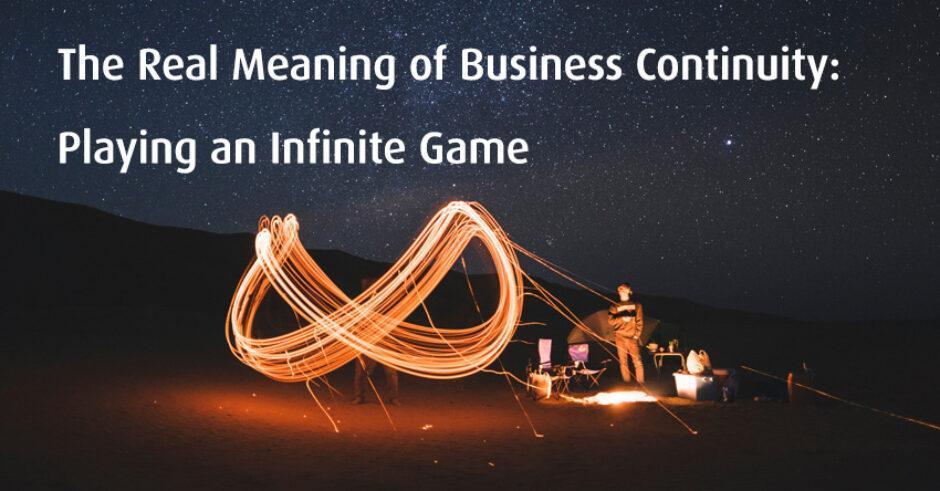I love listening to Simon Sinek and was enthralled by his video ‘Be an infinite Player’ where he explains that Business is an infinite game; it has been around for hundreds of years – long before current organisations came into existence and will still be around long after they have gone. However, he is also quick to highlight the fact that many businesses tend to play a finite game, one where they want to win (short-term), be in the lead – they spend time looking at revenue, market-shares – being the best. How do businesses know they are the best? On what is this based when there are ‘no agreed upon metrics’? In a finite game there are known players and businesses playing a finite game tend to watch what their competitors are producing and then try to compete by producing a better version of that product. Microsoft, for example, will compete against Apple – when Microsoft introduced Zoom it was much better than iPod Touch. But that didn’t seem to bother Apple because they are playing an infinite game; they want to stay in the game – the infinite game of business. So, why should you be playing an infinite game?
If you look at most of the companies that have gone out of business over the years, their demise was not down to the actions of their known competitors. Their demise has come about because of the actions of unknown competitors, companies that are new to the marketplace. These companies have brought with them something new to offer the customer as opposed to being caught up in the finite game of trying to compete through imitating others. As I have said in my articles over the past three years, businesses need to set their own benchmark. In their book ‘Reinventing the Organization’, Arthur Yeung and David Ulrich, when talking about Idea Generation, have stated that ‘creativity occurs when individuals turn their personal curiosity into something new’. If that is the case, and I believe it to be so, then by following someone else’s benchmark and trying to be a better them, you are utilising their creativity – not your own; placing yourself in a position to make tactical decisions but not strategic decisions. However, that does not mean that you should not ‘keep and eye’ on your competitors. What is the customer going to require in the future that your competitors are not providing?
If you want to stay in the game, then you need to identify what your competitors are not doing. However, if businesses are to place themselves in a position to be able to innovate and then create something different that adds value to the customer, they need to ensure that they are choosing the right strategies, capabilities, structure and culture in order to foster the communication, collaboration and leadership required in order to become customer-centric, rather than market-centric. They need the agility to be able to react to opportunities in the marketplace with speed and scale. I have already written a series of seven articles on the subject of Strategic Agility and, as these can be found on the Specialist Human Resource Limited Business Page, I will not be repeating the content here.
As I sit in my home office, writing this article, there are a number of businesses that are unable to continue to operate, or have had to diversify in some way, due to the Coronavirus. I have no doubt that many will be trying to plan for, what might seem, an uncertain future but perhaps this is a good time to look at the marketplace to try to ascertain what it is that their customers may need after this crisis is over. A time to provide something different to that of their competitors. I hope that you find this article interesting and, hopefully, helpful.


